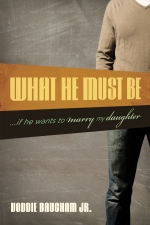 As preparation for Easter, I’ve been reading Jesus, Keep Me Near the Cross: Experiencing the Passion and Power of Easter, edited by Nancy Guthrie (Crossway). The book provides 25 excerpts from past and present leaders in the Church. Each of the excerpts provides a short chapter, from 4 to 8 pages or so. Guthrie masterfully weaves the chapters together into a glorious extended meditation on the Cross of Christ.
As preparation for Easter, I’ve been reading Jesus, Keep Me Near the Cross: Experiencing the Passion and Power of Easter, edited by Nancy Guthrie (Crossway). The book provides 25 excerpts from past and present leaders in the Church. Each of the excerpts provides a short chapter, from 4 to 8 pages or so. Guthrie masterfully weaves the chapters together into a glorious extended meditation on the Cross of Christ.
The excerpt from the 19th Century Evangelical Anglican J.C. Ryle is entitled “The Sufferings of Christ”. Ryle points out that we must not “be content with a vague general belief that Christ’s sufferings on the cross were vicarious”. He then illustrates how Christians should think on and value Christ’s sufferings. I couldn’t help but share this quote with you and encourage you to pick up the book if you can, it’s quite inexpensive, and it will be a great tool for meditating on Christ’s work as we approach Easter.
…We may follow him all through, from the bar of Pilate to the minute of his death, and see him at every step as our mighty substitute, our representative, our head, our surety, our proxy–the divine friend who undertook to stand in our place and, by the priceless merit of his sufferings, to purchase our redemption. Was he flogged? It was done so that “by his wounds we are healed” (Isa. 53:5). Was he condemned though innocent? It was done so that we might be acquitted, though guilty. Did he wear a crown of thorns? It was done so that we might wear the crown of glory. Was he stripped of his clothes? It was done so that we might be clothed in everlasting righteousness. Was he mocked an dreviled? It was done so that we might be honored and blessed. Was he reckoned a criminal, and counted among those who have done wrong? It was done so that we might be rekoned innocent, and declared free from all sin. Was he declared unable to save himself? It was so that he might be able to save others to the uttermost. Did he die at last, and that the most painful and disgraceful death? It was done so that we might live forevermore, and be exalted to the hightest glory. [Jesus, Keep Me Near the Cross, ed. Nancy Guthrie (Crossway, 2009) pg. 58-59]



 Before I forget myself, I need to remind everyone about the second annual super sale that Sovereign Grace Ministries is hosting. You can find details about the sale
Before I forget myself, I need to remind everyone about the second annual super sale that Sovereign Grace Ministries is hosting. You can find details about the sale